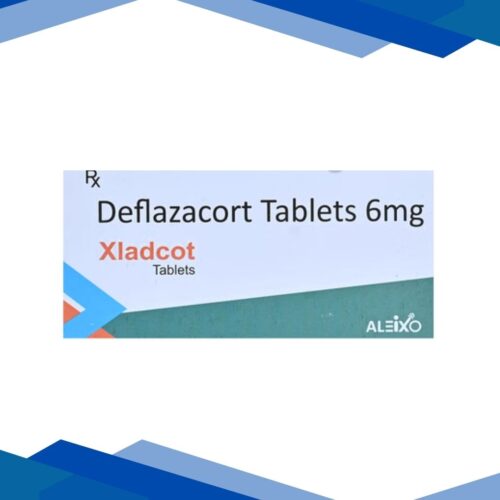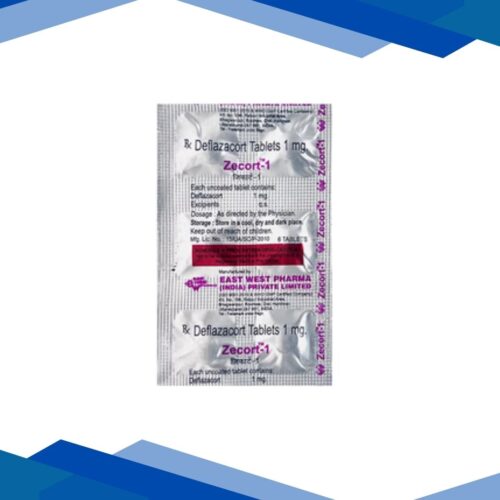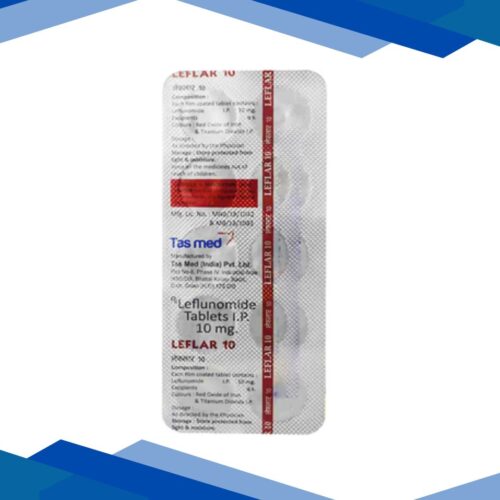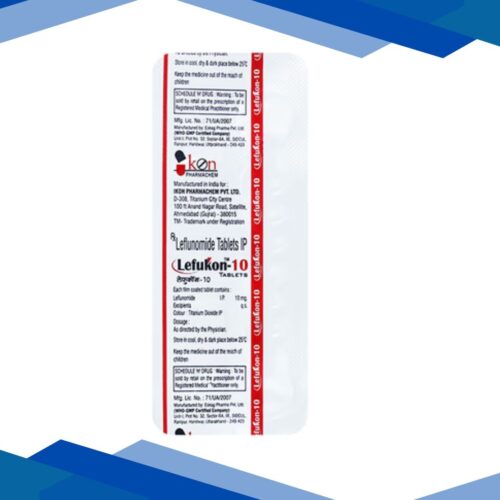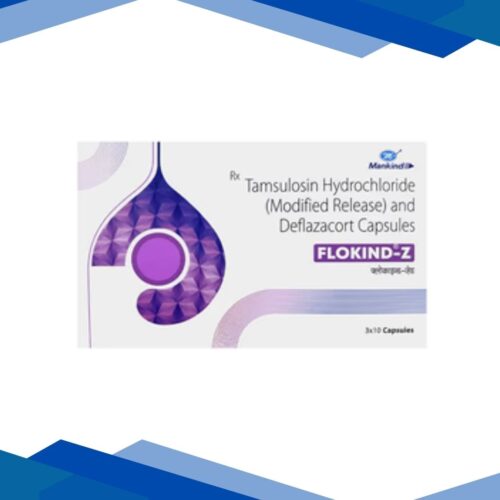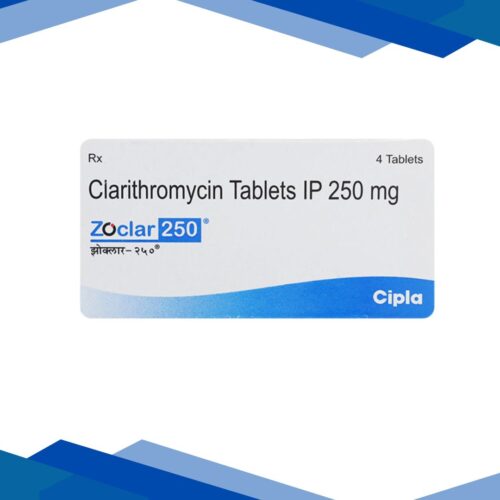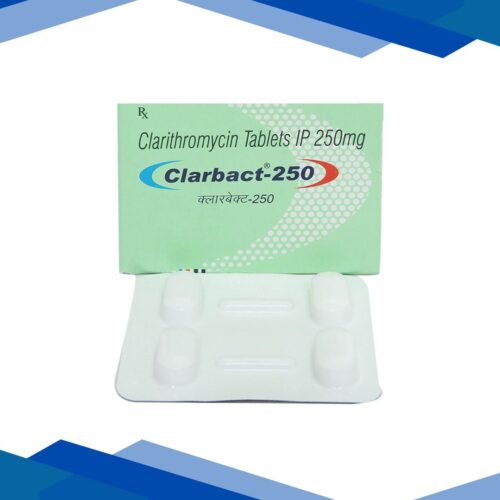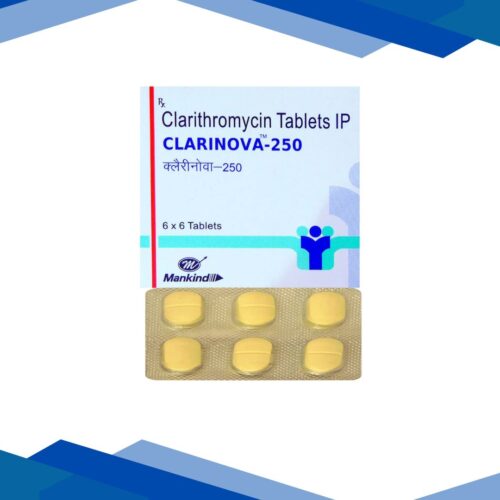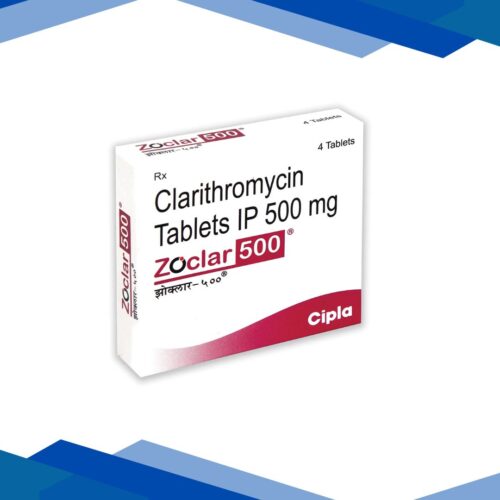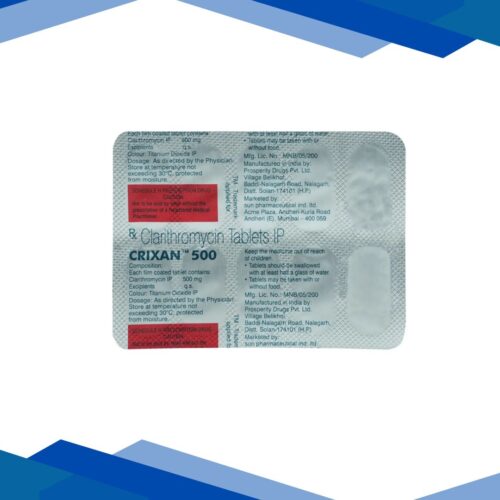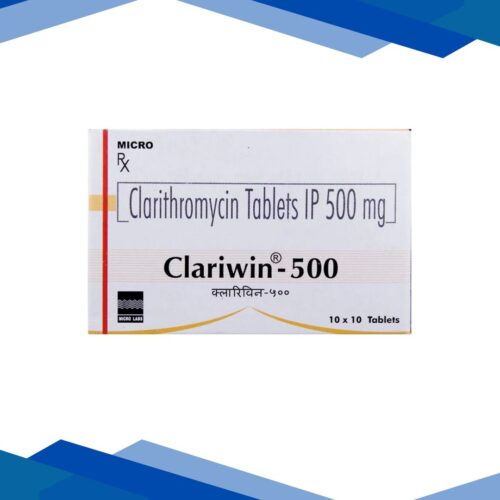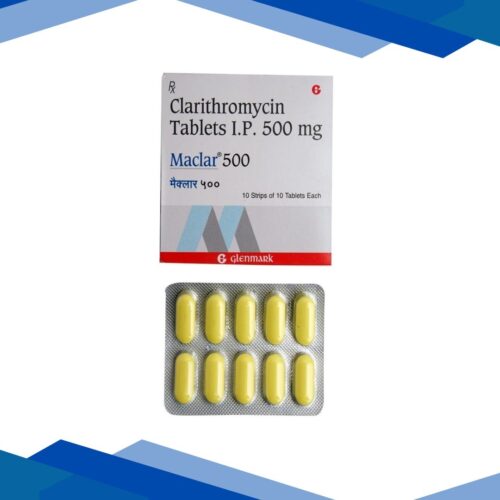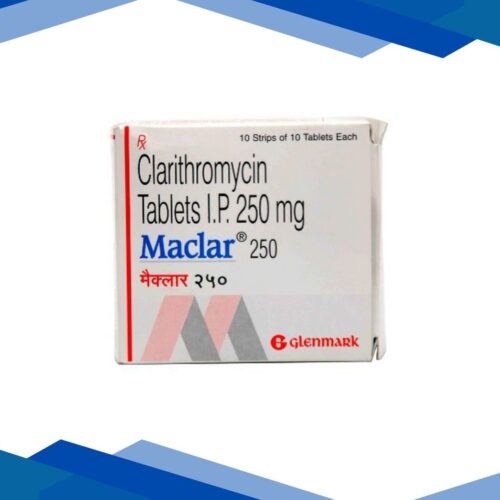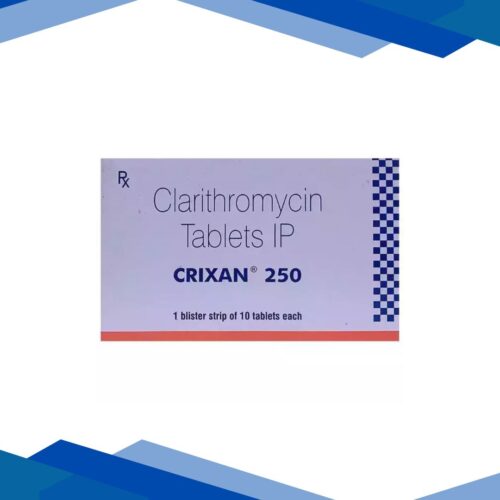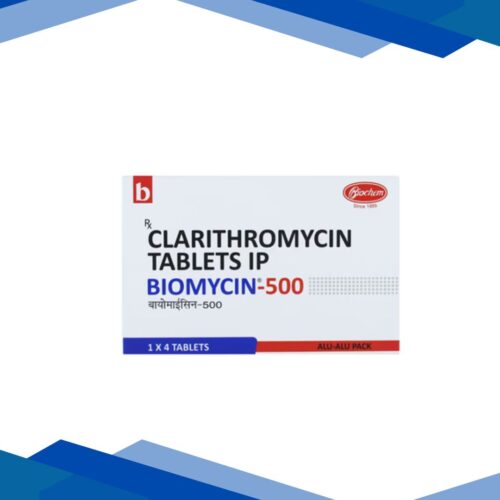FLOKIND Z Capsule 10’s
Biomycin
No Prescription yet? Don’t worry! Click Here to Get Online Consultation
Why Prescription is Required?
✅ Providing Right Medicines
Prescriptions are complex documents. We proofread and recheck at various steps to provide you the right medication in the correct form and dose.
⚖️ Helps Comply with the Law
Most medicines cannot be sold without a valid prescription, as per the Drugs and Cosmetics Act, 1940 and Rules, 1945.
Book Appointment with Doctor
Clarithromycin is used to treat bacterial infections such as throat infections, sinusitis, bronchitis, pneumonia, skin infections, and H. pylori-related stomach ulcers.
Clarithromycin
CLARITHROMYCIN
Overview:
Clarithromycin is an antibiotic used to treat a variety of bacterial infections, especially those affecting the lungs, sinuses, throat, ears, skin, and sometimes the stomach. It’s often chosen for people who are allergic to penicillin or when other antibiotics aren’t working well.
Classification:
Antibiotic
Uses:
Clarithromycin is used to treat:
Throat and tonsil infections
Sinus infections
Chest infections (like bronchitis and pneumonia)
Skin infections
Ear infections
Stomach infections caused by H. pylori (as part of combination therapy)
Some dental infections or off-label uses as decided by your doctor
How It Works:
Clarithromycin works by stopping bacteria from growing. It blocks the process bacteria use to make proteins—proteins they need to survive. This helps your immune system clear the infection more effectively.
Side Effects:
Most people tolerate it well, but some may experience:
Common side effects:
Nausea or upset stomach
Diarrhea
Headache
Unusual taste in the mouth (often metallic)
Less common or serious:
Liver problems (jaundice, dark urine, fatigue)
Irregular heartbeat (rare)
Hearing changes (usually temporary)
Severe allergic reactions (rash, swelling, trouble breathing)
Antibiotic-associated diarrhea (due to imbalance of gut bacteria)
Precautions:
Inform your doctor if you have liver problems, kidney issues, or heart rhythm disorders.
Let your doctor know about all other medicines you’re taking—especially statins (for cholesterol), blood thinners, or drugs for heart rhythm, as interactions are possible.
If you experience severe diarrhea even after stopping the medicine, don’t ignore it—it may be a sign of a serious gut infection.
Complete the full course of the antibiotic, even if you start feeling better early. Stopping too soon may cause the infection to return or become resistant.
Not recommended in pregnancy unless clearly needed—always check with your doctor.
Disclaimer:
This content is for informational purposes only. Always consult a healthcare provider for medical advice and proper dosage
